Essays

Simon Dring reporting from Bosnia. Photo: Television Stills
At the invitation of Farhad Mahmud, the son of the late A.S. Mahmud, who at the time had bid for a license to setup the first private terrestrial tv channel in Bangladesh, Simon Dring returned to Dhaka in 1997. He and Farhad set to work to setup the channel, even before the license was secured. Once that happened, there was no looking back.
Working as the Managing Director of ETV, he orchestrated a strong infrastructure for the channel that eventually launched on Bengali New Year, April 14, of 2000. The novelty and superior craft being presented was unmissable, and soon the masses around the country were hooked on its menu of innovative and entertaining programmes, its professional approach. With a team of more than 50 reporters, producers, and editors, he initiated a new style of news and a new generation of television journalism for the first time - to be sure, revolutionary.
Following Dring's vision, within two years, ETV was able to prove a business model based on quality programming and staying close to the pulse of the people could not only work, it had limitless potential. It had an audience of more than 40 million already, and an annual turnover of that already touched USD12 million, an eye-popping amount at the time.
However, after the change of government in 2001, ETV was well in the sights of the new regime, and sure enough, in August 2002 the channel was shut down. Dring's visa and work permit were both scrapped, thus leading to him leaving the country in October 2002. Dring did return to Bangladesh later - the return of the AL government heralding his official recognition in 2012 as a Friend of Bangladesh, thanks to his valiant role as a young reporter in 1971, particularly in those blood-soaked days of March after Operation Searchlight commenced. He would also work as the advisor and Chief Broadcasting Officer of Jamuna Television by the end of 2013, before returning to his family.
After his unfortunate passing last July 16, his former colleagues and acquaintances in Bangladesh have been reminiscing about the late-great journalist. It is interesting to observe that it is that very cohort that he took under his wing and built up as broadcast journalists are the ones in leadership positions in most of the private tv channels of the country today. But is it his legacy they carry forward today? Dring's own opinion of the job they were doing, in a media landscape that had mushroomed by then with the number of channels, was quite withering. Speaking in 2013, he stressed the need for training that was apparent across all the channels.
More broadly, he lamented the fact that such a 'plethora' of outlets, quantity without quality, had proliferated. He pointed out that the market was not strong enough economically to support so many channels, and this had inevitably led to the "decline in quality programming and news."
A master of the medium
Supan Roy, Founding Executive Director of Speak Out Foundation and a former Head of Program at Jamuna TV, and lest anyone forget, former Reporter at Ekushey Television, spoke of the patrician role Dring played in his career.
"Before joining Ekushey Television (ETV), I had no idea about Simon Dring and his contributions as a journalist during the Liberation War. When I started working with him - I realized how lucky I was. He never scolded me or anyone for any mistake, rather he always patiently corrected our faults in a gentle and profound way," Roy reminisced.
To him, it was particularly memorable how Dring would build up his journalists, and encourage them.
"From my working experience with Dring in both ETV and later on Jamuna TV, he never failed to amaze us with his appreciations, whenever we did anything extraordinary," he said.
Roy recounted how despite not being the sports correspondent of ETV, he was pleasantly surprised to be nominated by the office to cover the historic announcement of Bangladesh gaining Test status at a press conference at the historic Lord's cricket ground in England in 2000.
"Later I was informed that it was Simon Dring's decision, as he thought I was a good fit as someone who can speak spontaneously in front of the camera on the reporting venue," he added.
"Another memorable incident that I fondly remember, happened 14 years later when we both were working for Jamuna TV. The popular crime investigation-based programme 'Investigation 360 Degree' was named after my idea, however, was opposed by the entire team of the programme. They wanted to name it 'Doorbin' (Binocular). My idea was that the programme would visualise the entire aspect of the crimes, just like the 360-degree vision of the flies," Roy narrated.
Dring had been in two minds, with two different ideas being forwarded, but was likely to side against Roy's idea, or so he felt, due to a long hiatus from such programming. Yet immediately after the pilot episode aired, Dring was to come down to his office and congratulate him generously, and saying "Supan you did very well, well done my Roy."
This kind of appreciation is rare nowadays, but that is how Dring motivated his team. "If the content is good, people will like it - this is the motto Simon Dring taught us and this is the reason behind the successful journeys of the televisions he administrated."
Another Dring alumni we spoke to, Mahfuz Mishu, was not from the ETV days, but from that latter, less celebrated stint as an advisor to Jamuna TV during its nascent stage. It allowed us some insight into the wisdom he had gathered on the medium, as well as even some of his Do's and Don't's for broadcasters.
"I got the opportunity to work with Simon Dring at Jamuna Television. Once he was asked about good television reporting, to which his answer was: 'If your television's audio is muted while the video goes on and still your audiences understand what are the messages you are trying to deliver, that is good journalism on television.' He was a man who deeply understood television and its audiences. He understood that television is mainly based on visuals," said Mishu, currently special correspondent at Jamuna.
What may be some of the lessons Dring held on to, and imparted to those around him? A number of people who know him have made the point that Dring was very keen on aesthetics - for a visual medium like television, that was the most important avenue to catch the audience. And this is where he had some simple yet solid-as-rock rules.
"So he always focused on the appearances of the reporters and cared about every small detail. An on-screen broadcasting reporter should not wear jeans, should not wear one-colour or multicolour shirts, should not appear with rolled sleeves. These were some of his small yet impactful methods to ensure quality reporting on television," Mishu was able to relay. People in broadcast, should take note.
Another key insight Mishu was able to tell us, was Dring's distaste for exploiting people's misery to score any sort of point. "Many news outlets often showcase ailing or suffering Freedom Fighters to describe their miseries, and Simon Dring never liked or welcomed this approach. 'They are heroes, how can we showcase them like that?' he would say. This was one of the many examples of his love and respect towards the Freedom Fighters."
Two of Dring's more famous students, or those who have gone on to fame beyond ETV, are Munni Saha and Z I Mamun. They both lamented the loss of a father figure via social media posts. Munni Saha, Chief News Editor, ATN News and former Reporter, Ekushey Television, recalled her 'guru':
"Many of us have gathered a lot of memories while taking television journalism lessons from this guru. Simon was very careful and conscious regarding the PTC (Piece to Camera, which means when a television presenter or a character speaks directly to the viewing audience through the camera). He was quite picky about PTC - often he would correct us.
One day, I jokingly asked: "How many times have you made a mistake in PTC, Simon?"
Our boss Simon answered - "I can't remember dear, and I still make mistakes!"
Then I asked him, "You always say to speak your heart and listen to your mind, in your piece to camera. Have you ever mentioned Bangladesh while saying the name of your country?
With a very sweet smile, and holding his hand like a microphone, Simon said: "Simon Dring, journalist, Dhaka, Bangladesh"... this is my PTC in my heart."
(Taken from Munni Saha's Facebook post).
Z I Mamun, Chief Executive Editor, ATN Bangla and former Reporter, Ekushey Television, would call him 'more than a father':
"When Bangabandhu Sheikh Mujibur Rahman returned to the country after the War of Liberation, Simon interviewed the Father of the Nation who also had admired the great journalist. He later joined BBC Television in London as a war correspondent and went on to become an internationally acclaimed TV personality by covering various wars, including the Vietnam War. Ekushey Television, the country's first private terrestrial television, was established in 2000 under his leadership - and he groomed the first generation of professional TV journalists in Bangladesh.
I had the opportunity to work with him on Ekushey Television for about three years. Then the BNP-Jamaat came to power and stopped broadcasting Ekushey TV in 2002 through a High Court case. Simon Dring's work permit was revoked, and he was forced to leave the country. I also went to the airport that day to say goodbye to him.
Television journalism in Bangladesh is also very much indebted to Simon Dring. With the death of Simon Dring, Bangladesh lost one of its best friends - and those of us who are practising journalism in Bangladesh, we have lost our guru of journalism, our patriarchal guardian, to whom we are forever indebted.
To me, Simon Dring's death is like mourning for a father. I will always remember his affection, love and education. Goodbye, Simon Dring - the friend of Bangladesh since its birth, and more than a father to me."
(Taken from Z I Mamun's Facebook post and a recent write-up at the DW blog).
The consummate boss
Besides being the frontman of Ekushey TV's news team, Dring was also a successful managing director - in terms of managing all the massively popular content for ETV. Despite not being a Bangladeshi, he had a sharp vision and understanding of the public's tastebuds, thus he always welcomed different programmes on Ekushey's screen which were never seen before in the country.
One of those widely popular programmes was the famous street show "Pather Pyanchali". Hosted by presenter-turned-filmmaker Debashish Biswas, the show went on to become one of the most popular shows ever made in Bangladesh. It was initiated and supervised by Syed Almas Kabir, the current President of BASIS and Director at FBCCI who was a faculty member at the Independent University Bangladesh (IUB).
Kabir too has written on Facebook on the experience of how they managed to get the gig:
"It was in the year 1999 when I, along with my then-students and associates Tanvir Hossain Probal, Imtiaz Karim and Debashish Biswas, went to Mr Simon Dring, who was the Chief of Ekushey TV, with an idea of producing a comical and satirical street show. He believed in us and asked for a pilot. We shot 4 episodes with our own money and went back to him. He loved them all and asked the Head of Programme Mr Nawazish Ali Khan to take us on board.
The series "Pather Pyanchali" subsequently became a cult hit and clocked the highest TRP rating on a Bangladeshi channel till it ended with the shutting down of ETV. I'll be ever grateful to Simon for believing in us and giving us the break. While I ventured into the world of business and Imtiaz into banking, Probal and Debashish went on to becoming celebrated filmmakers, producers and presenters. RIP Simon Dring, up in the heavens!"







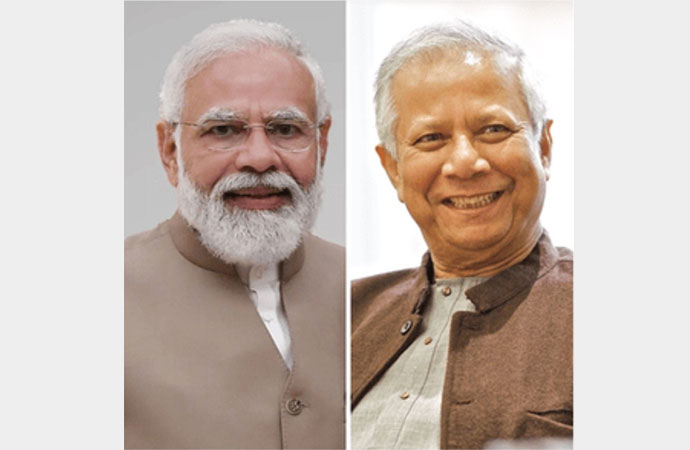
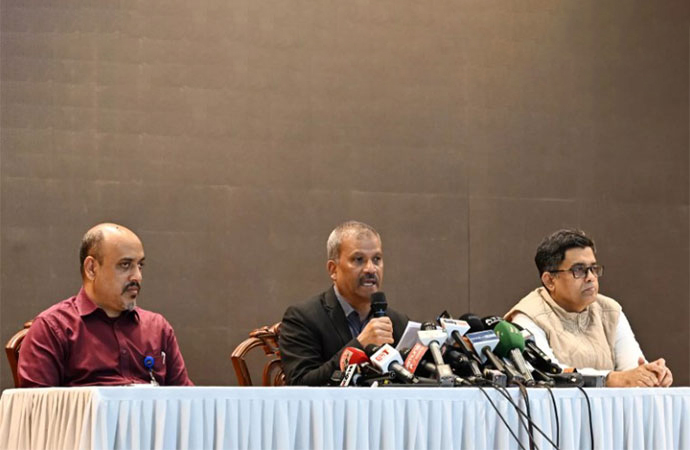

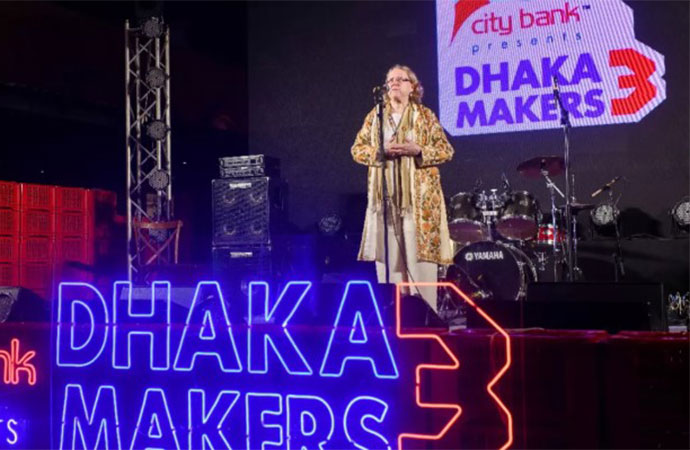
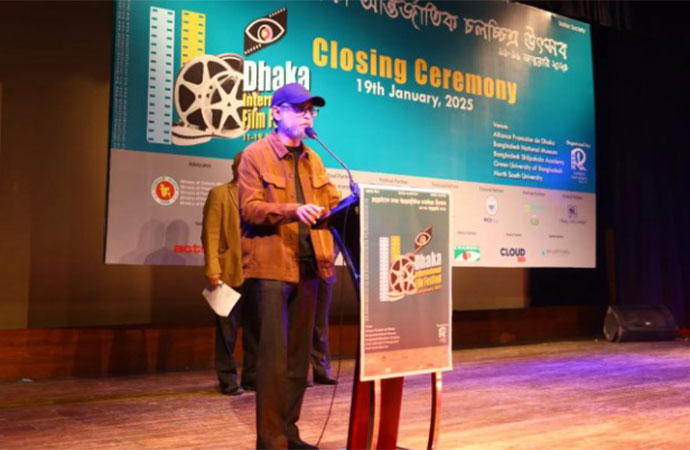
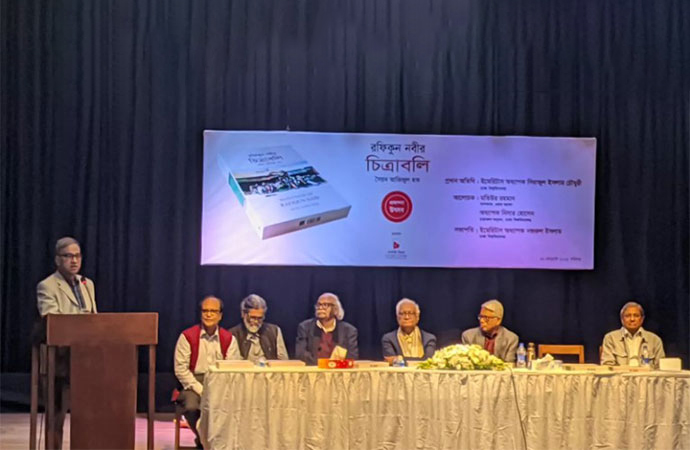







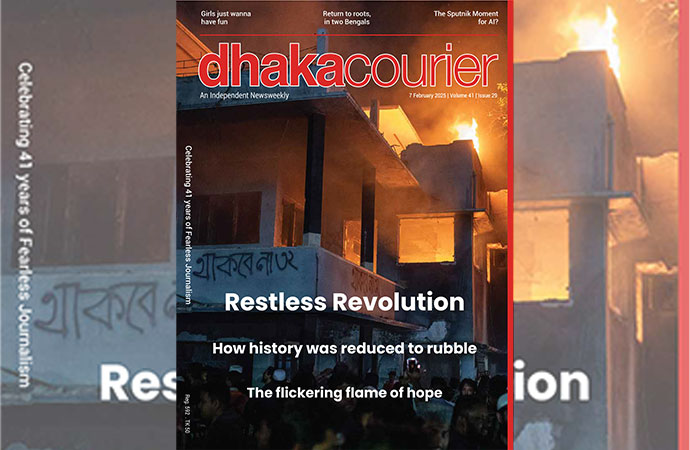
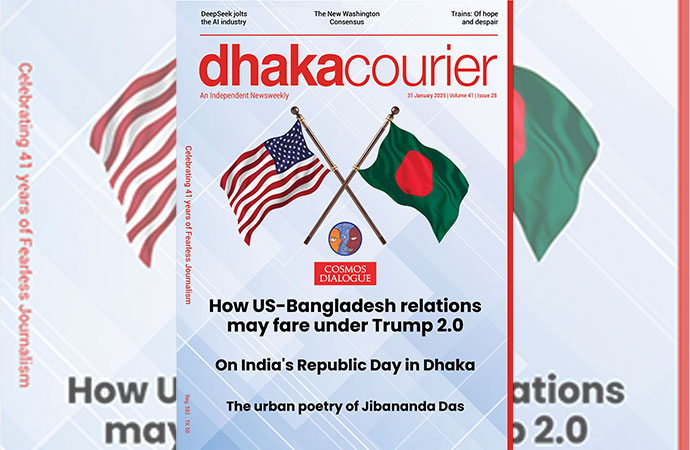

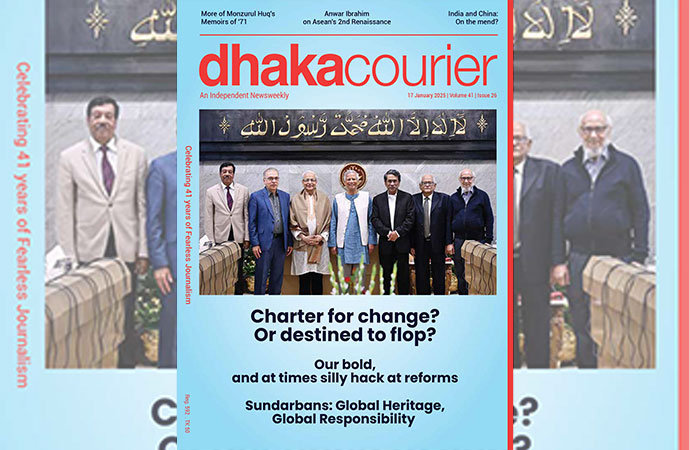
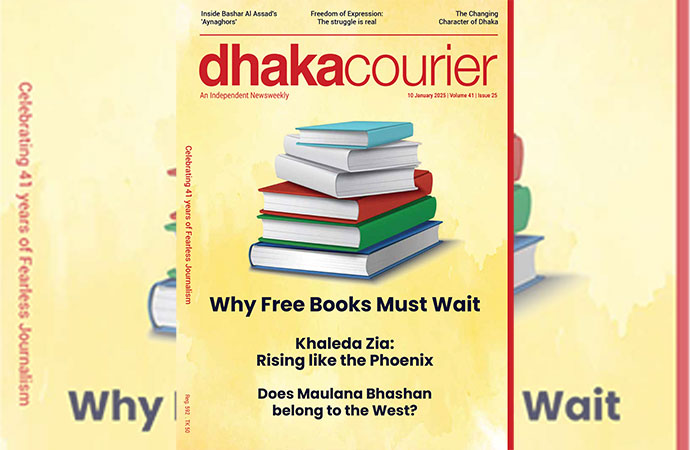
Leave a Comment
Recent Posts
Shakira resumes world tour aft ...
Colombian pop icon Shakira announced on Monday that she will continue ...
The Time of Monsters
Could the nationwide spectacle of violence and vandalism that we witne ...
President Donald Trump upended three years of US pol ..
Over 3,000 people were arrested from different parts ..
Engage with “new Bangladesh”: Dr Yunus to global com ..
‘Horrific’, ‘unbelievable’, Dr Yunus says after visi ..